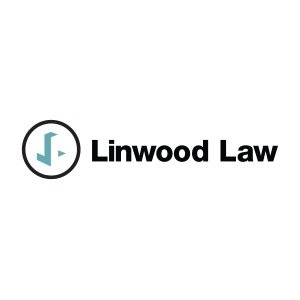Best Family Lawyers in Christchurch
Share your needs with us, get contacted by law firms.
Free. Takes 2 min.
Free Guide to Hiring a Family Lawyer
List of the best lawyers in Christchurch, New Zealand
About Family Law in Christchurch, New Zealand
Family law in Christchurch, New Zealand, covers a wide range of legal issues related to family matters, including child custody, divorce, spousal and child support, paternity, adoption, and protection orders. It's a complicated field with significant emotional and financial implications. The complexity of the legislation and the presence of the Family Court make it beneficial to seek professional help.
Why You May Need a Lawyer
Various situations may necessitate the need for a lawyer. Family-related legal matters can be stressful and emotionally challenging. An experienced family lawyer can negotiate legal processes amid these challenging times. Instances where you might require legal assistance include filing for divorce, negotiating child custody, spousal support, or dealing with domestic violence situations. In all such matters, a lawyer can represent your best interests and guide you throughout the process.
Local Laws Overview
The key aspects of family law in Christchurch involve the Care of Children Act 2004, which prioritizes the welfare and best interests of the child in disputes over custody and care; the Property (Relationships) Act 1976, which provides for the equal sharing of relationship property in the event of separation or death; and the Domestic Violence Act 1995, which provides protection to those in domestic relationships. Other relevant laws include the Adoption Act 1955 and the Child Support Act 1991.
Frequently Asked Questions
1. Can I represent myself in Family Court?
Yes, you can represent yourself. However, family law is complex and the court process can be confusing and stressful. It's recommended to seek legal advice, regardless of whether you choose to be represented by a lawyer or not.
2. What does equal sharing mean in Property (Relationships) Act?
Equal sharing means that both parties in a relationship are entitled to share equally the relationship property. This applies to couples who have been in a marriage, civil union or de facto relationship for three years or more.
3. How is child custody determined?
Child custody, known as "day-to-day care" in New Zealand's law, is determined based on the best interests of the child. The court often prefers arrangements where the child can maintain a relationship with both parents. Factors such as the child's wishes, the parents' roles, stability, safety, and the child's overall well-being are considered.
4. What's the process of getting a protection order?
A protection order can be obtained by applying to the Family Court. This application can be made on your own or with the help of a lawyer. Evidence of domestic violence, including physical, psychological, or sexual violence, must be provided.
5. How is the amount of child support determined?
Child support is calculated according to each parent's income, how many children are involved, how old the children are, and how much time they spend with each parent. The Department of Internal Affairs provides a calculator on their website to give an estimate.
Additional Resources
Several resources are available for those seeking legal advice related to family law. The New Zealand Law Society provides a detailed list of family lawyers in Christchurch. The Ministry of Justice website and Family Services Directory are also valuable resources providing information on family law in New Zealand.
Next Steps
If you require legal assistance in Family Law, it is recommended to research and contact a family lawyer in Christchurch. Many law firms offer an initial consultation free of charge. Prepare adequately for this meeting by making a list of questions and gathering any related documents. Once you have engaged a lawyer, maintain open communication to ensure you comprehend all procedures and possible outcomes.
Lawzana helps you find the best lawyers and law firms in Christchurch through a curated and pre-screened list of qualified legal professionals. Our platform offers rankings and detailed profiles of attorneys and law firms, allowing you to compare based on practice areas, including Family, experience, and client feedback.
Each profile includes a description of the firm's areas of practice, client reviews, team members and partners, year of establishment, spoken languages, office locations, contact information, social media presence, and any published articles or resources. Most firms on our platform speak English and are experienced in both local and international legal matters.
Get a quote from top-rated law firms in Christchurch, New Zealand — quickly, securely, and without unnecessary hassle.
Disclaimer:
The information provided on this page is for general informational purposes only and does not constitute legal advice. While we strive to ensure the accuracy and relevance of the content, legal information may change over time, and interpretations of the law can vary. You should always consult with a qualified legal professional for advice specific to your situation.
We disclaim all liability for actions taken or not taken based on the content of this page. If you believe any information is incorrect or outdated, please contact us, and we will review and update it where appropriate.
Browse family law firms by service in Christchurch, New Zealand
Christchurch, New Zealand Attorneys in related practice areas.

















